FEMINISM + SEXUAL ASSUALT
HELP BLACK TRANS WOMEN!
BLACK TRANS & NON-BINARY PEOPLE: one of the best forms of support for trans ppl in general & especially on tdov is monetary support! so i'm making a crowdfunding thread for black trans ppl for #TDOV2020! black trans/non-binary ppl, drop your paypals/venmos/cashapps in the comments !
trans day of visibility is how we show to the world that we exist & we deserve to do so without being harmed, but it's also an opportunity to show others how badly we need to be supported within society as well.
molasses chicago is also raising money for black trans people that need assistance during this pandemic. follow @/molasseschicago on instagram & tune in to their ig live this friday on april 3rd at 8:30pm cst to show support! retweet & tell your friends! this #TransDayOfVisibility - my collective is announcing our second fundraiser for Black trans folks in need. Last time the $500 we raised got 15 people meals, self-care items, and $ for unpaid bills. Let's do it again for others
Fri, 4/3 - 8:30 CST
Show this thread
i have a few places you can donate:
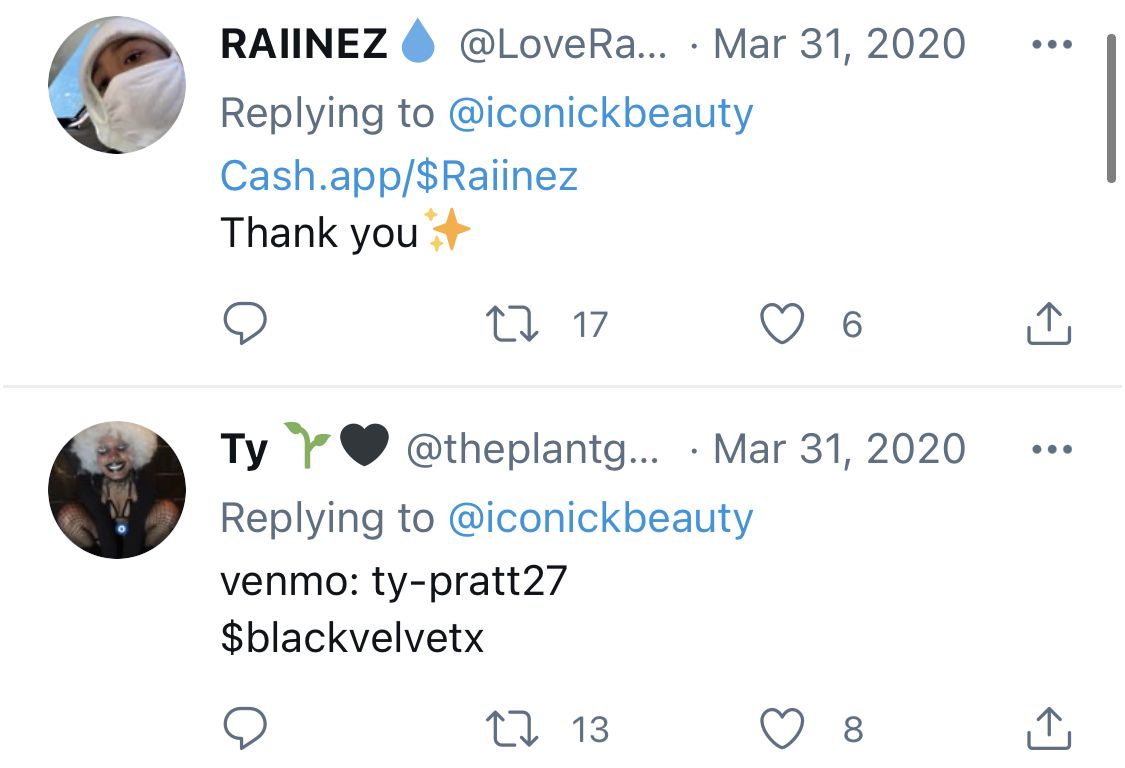
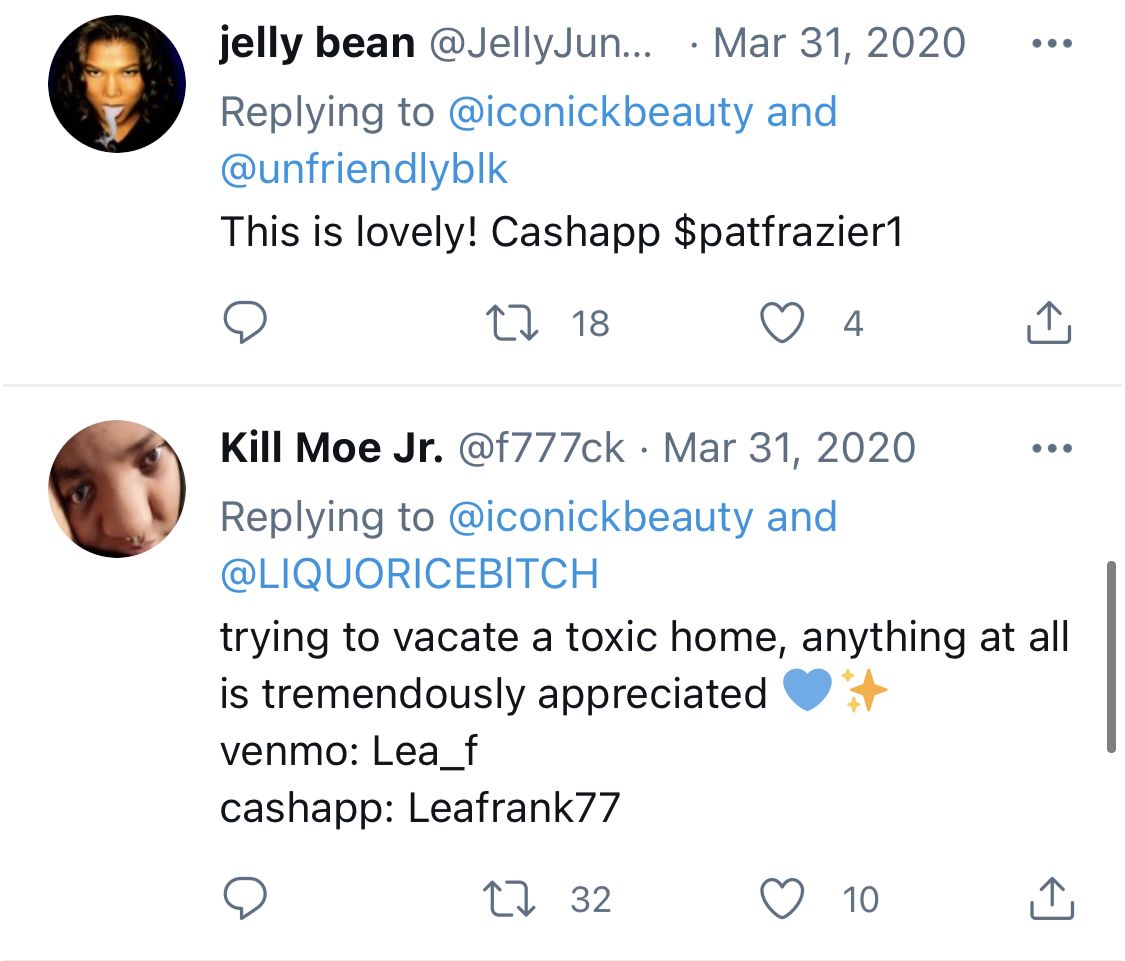
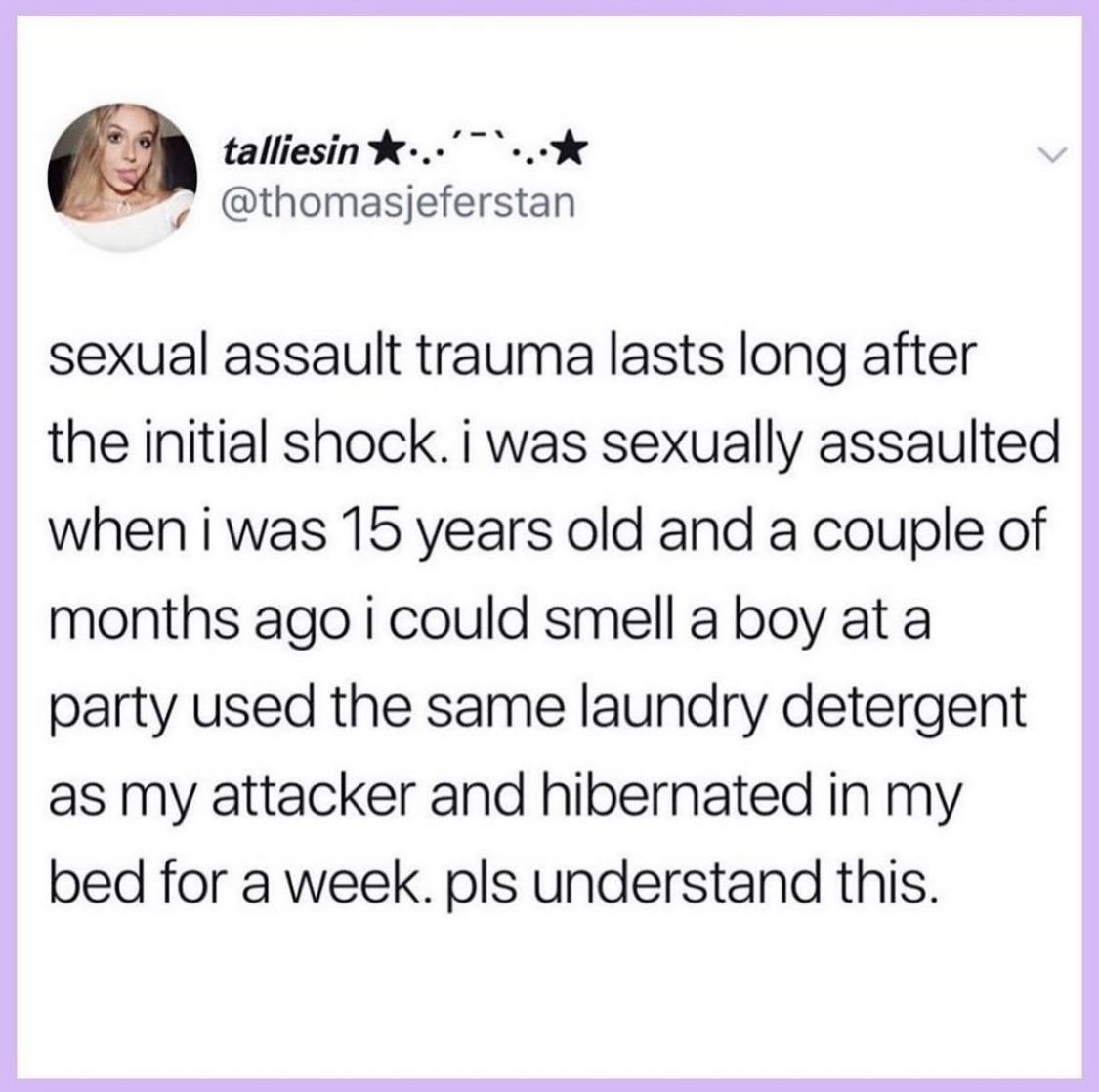
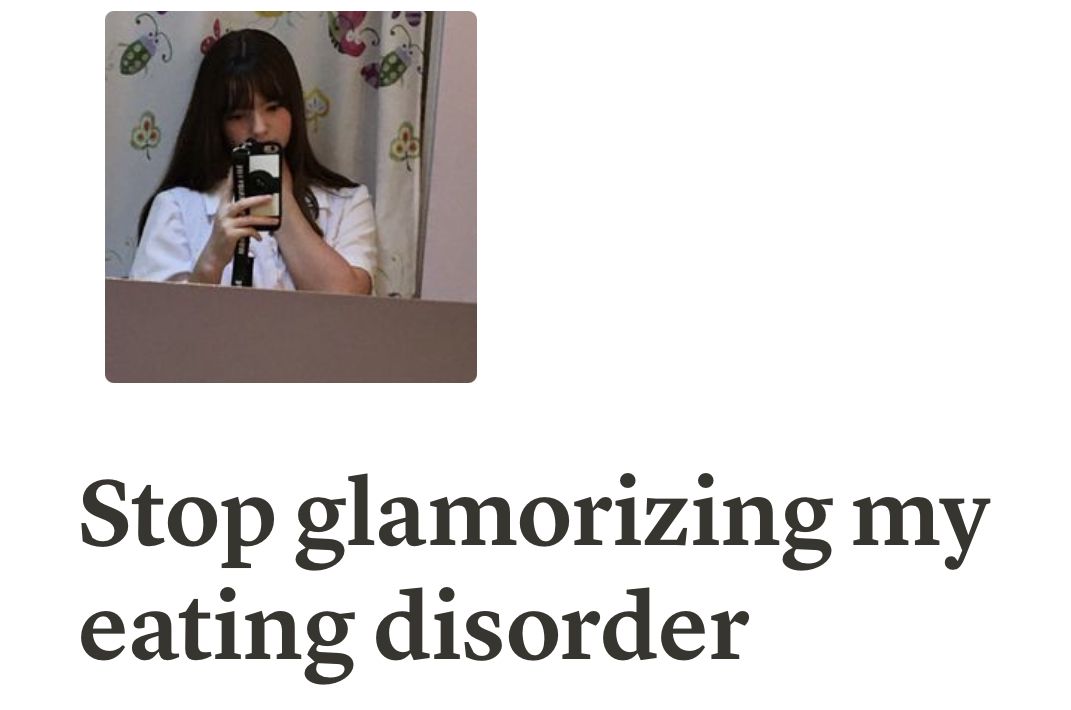
( six minute read )
Trigger Warning: The following piece discusses disordered eating.
It hurt me when my "friend" came up to me and said, "what are you, anorexic?" then laughed and walked away. He didn't really care, he didn't look close enough to see the pain. It hurts me when I see people glamorizing the thing that controlled me. The thing that took away six months of my life, the thing that severed all my friendships, and that I'm still recovering from to this day. The thing about eating disorders is that they take over your life. Every thought, every movement, every single little thing.
And it's exhausting, counting the calories on every single package, it's exhausting to be awake at two in the morning, sweating on the floor. It's exhausting to wake up, and slip a measuring tape around your waist, and cry because of what you see. And you're tired to the point where you have no voice, and every conversation takes a bit too much effort so why talk to people at all?
Tsow-Tun Le Lum Society
Substance Abuse and Trauma Treatment Centre
Tsow-Tun Le Lum means "Helping House"
To ensure we follow the physical distancing requirements and other recommendations identified in B.C.'s Restart Plan, Tsow-Tun Le Lum has reduced the number of residents within our Centre. We currently offer one residential program at a time with a limited number of residents.
You may be interested in our 3-week ONLINE program named 'Developing Personal Wellness'. This program introduces healthy coping skills to support individuals in their recovery. For more information, or if you're interested in participating in our programs, please click the 'Referral Packages' tab in the menu bar. Our staff and cultural teams are providing confidential outreach services such as counselling and cultural support by phone, video, or other means as possible. To access cultural support or outreach services please call our toll-free line at 1-888-403-3123; or our main office at (250) 390-3123. Further information, and support can be found on our Facebook page - Tsow Tun Le Lum RHSW Support.
www.tsowtunlelum.org
r Facebook page - Tsow Tun Le Lum RHSW Support.
Thuy Namut
Substance Abuse Program
Grounded in Aboriginal culture and tradition, this 40-day intensive residential program is available to First Nations people. Holistic in nature, the program is for those who are ready to put substance abuse behind them.
Learn More
Kwunatsustul
Trauma Program
Kwunatsustul is a Second Stage Recovery program with a focus on trauma. This program is designed to address the multitude of Mental Health and Trauma issues being faced in community. Funded by First Nations Health Authority.
Split Wolf With Human Hands
Clients in treatment have realised that they have negative and positive personality traits. Often times we allow animal instincts to dominate our lives. We fail to control our appetites.
Treatment helps us turn away from all that is negative and seek out all that is good in our humanity. The "Split Wolf" may be interpreted as the emergence of the humane (the good, the positive side of the personality, as well, the hands may be seen along a vertical axis, one pushing away from all negativity, the other drawing toward everything positive.)
The use of an earth-tone red, should be a rather obvious symbol; the choice of the wolf design may not be quite so obvious. On the West Coast, wolves represent authority, law and order, and control. Clients certainly will be seeking self-control. Also, wolves are known for their intelligent co-operation during their hunts. Clients, too, will want to help each other as they search for their stronger self and healthier lives.
The white star created by the junction of the heads and hands, symbolizes the light at the end of the tunnel, so to speak. Everyone seeking treatment is also seeking enlightenment. Treatment should improve the health of the body and mind, enlightenment is treatment of the spirit.
Ron Hamilton: Artist and designer of our logo

A Helping Hand
In order for someone to become a client in treatment, they must have sought out help; they have to have said, "I have a problem, I must look for help." The treatment centre provides a nutritious diet and regulates waking and sleeping hours. This regularity begins to heal the body. It is the client's responsibility to maintain their regularity after treatment. The centre provides counselling to identify mental health problems, and the group sessions along with counselling are aimed at healing the mind. Ultimately each client will realize that practicing alcoholics are spiritually sick. They will then begin a spirit quest; to identify a higher power capable and providing them with strength, determination, and inspiration; to struggle with whatever problems life provides daily.
The arm and hand have no face attached, because each individual decides for themselves, where their help is coming from; still it is meant to be interpreted as a helping hand. The star represents enlightenment, realization, and awakening. The three leaves on the sprig of medicine are meant to indicate that alcoholics are never through with the process of healing themselves; that each day must be taken as it comes.
Originally the plan was for a face to be included in the design, representing the staff at the centre and also the "complete number" of four leaves were planned. I feel the alcoholic never ceases to require "medicine" and so the three leaves.
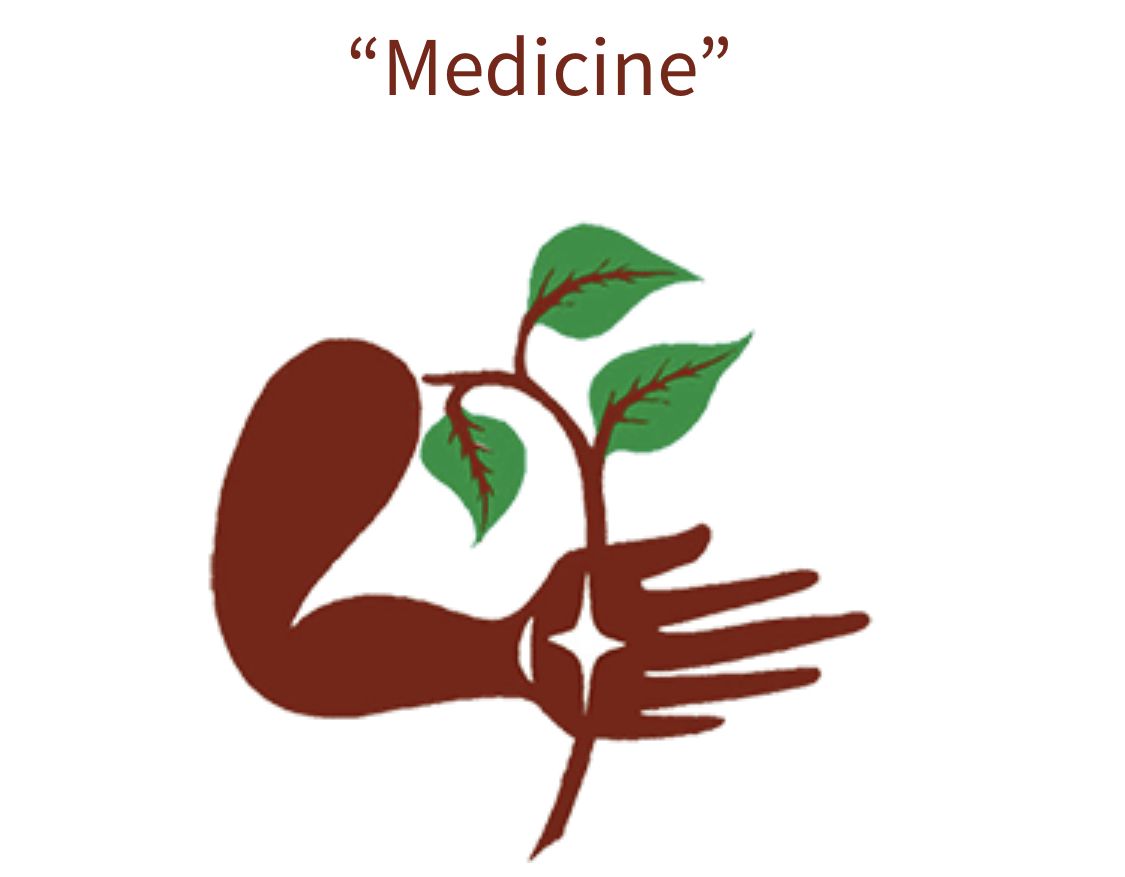
Ron Hamilton
October 18, 1987
Tsow-Tun Le Lum Society
Substance Abuse and Trauma Treatment Centre
PO Box 370
699 Capilano Road
Lantzville, British Columbia
V0R 2H0
Tel: (250) 390-3123
Fax: (250) 390-3119
email: [email protected]
Due to confidentiality and anonymity Tsow-Tun Le Lum will not post Intake dates. Application(s) are accepted by referral workers only: application forms (intake packages) are available on this website - please click on "Referral Packages tab". Please review "admission criteria" prior to filling out the referral package. If you have any questions or concerns please contact our office during regular business hours: Monday to Friday from 9:00am-12:00pm and 1:00pm-4:00pm.
website by Seriously Creative
Although Stop Violence Against Women endeavors to provide useful and accurate information, Stop Violence Against Women does not warrant the accuracy of the materials provided. Accordingly, this Web Site and its information are provided "AS IS" without warranty of any kind, express or implied, including but not limited to, the implied warranties of merchantability, fitness for a particular use or purpose, or non-infringement. Some jurisdictions do not allow the exclusion of implied warranties, so the above exclusion may not apply to you. We reserve the right to make improvements and/or changes in the format and/or content of the information contained on the Web Site without notice.This information is provided with the understanding that Stop Violence Against Women and its partners are not engaged in rendering legal or other professional services. If legal advice or other expert assistance is required, the services of a competent professional should be sought.
Copyright © 2018 The Advocates for Human Rights. All rights reserved. Permission is granted to use this material for non-commercial purposes with proper attribution to The Advocates for Human Rights.
Home > What's New
New Report: Promoting State Responsibility for Sexual Violence Against Women in Morocco
Monday, February 1, 2021 2:00 PM
Mobilising for Rights Associates recently published a new report entitled "Promoting State Responsibility for Sexual Violence Against Women (SVAW) in Morocco." It highlights the State's response to sexual violence against women and the impact of current laws on SVAW cases. The report features interviews with victims of sexual violence from Morocco, the results of an online survey, case file reviews, and more.
The report identifies gaps in Law 103-13 on the Elimination of Violence against Women and disparities in the response to SVAW. Laws and procedures on sexual violence do not take into account the realities of sexual violence, and the response of key actors focuses primarily on the dynamics of the relationship. Reporting is also low due to the prevalence of victim-blaming and reprisals. MRA has offered several recommendations such as addressing gaps in current laws and barriers women face to reporting sexual violence, implementing protection measures, and ensuring that the priorities raised by women are reflected in the States response to SVAW.
Police Say Law Limiting Online Advertising for Sex Has Pushed Sex Trafficking Underground
Saturday, November 7, 2020 3:40 PM
In 2018, U.S. lawmakers voted overwhelmingly in favor of the Fight Online Sex Trafficking Act in order to hold tech companies liable when their platforms are used for sex trafficking. According to law enforcement officials, however, the law has made it more difficult to investigate sex trafficking activity by pushing the offenders "further underground." In addition, this has made it harder for sex workers to inspect their clients in order to avoid potentially dangerous situations. A federal study of the effects of the 2018 law is now in progress, backed by 13 national lawmakers.
Compiled from: McCabe, David, and Kate Conger, Stamping Out Online Sex Trafficking May Have Pushed It Underground, The New York Times (December 17, 2019).
Home > What's New
China: Online Video Awakens National Discussion on Domestic Abuse
Saturday, October 31, 2020 5:35 PM
Despite new anti-domestic violence legislation, victims of domestic violence in China still face significant barriers. In June 2020, security footage of a husband beating his wife in her boutique shop in the city of Shangqiu spread throughout a social media platform in China, triggering a national discussion on the prevalence of domestic violence and legal barriers to relief for victims. The survivor, Liu Zengyan, ended up in the hospital with serious injuries; when the court denied her request for divorce and recommended marital mediation, she posted the video in hopes that public pressure would change the judge's mind.
Ms. Liu's case is representative of the barriers victims of domestic abuse face in China. Marital rape is still legal, courts encourage mediation over divorce, and beginning next year, couples seeking to divorce will be subject to a "cooling off period" of 30 days. China enacted an anti-domestic violence law in 2016 making restraining orders more available, yet judges still require evidence of physical abuse, discounting emotional or verbal abuse, in order to grant the orders. Moreover, when judges do grant protection orders, they are rarely enforced.
Compiled from: Wee, Sui-Lee, Her Husband Abused Her. But Getting a Divorce Was an Ordeal, The New York Times (September 16, 2020).
3 WAYS TO BE AN INTERSECTIONAL FEMINIST ALLY
Through our partnership model of working with existing women's rights organisations across the Asia Pacific region, we make it a priority to build and contribute to an inclusive feminist movement. A big part of that means always approaching our work with an intersectional lens, and we continue to learn so much from the amazing people we work with on what it means to be an ally.
Previously, we spoke a bit about the history of intersectional feminism, and what it means to us. Intersectionality can seem complicated, but it's really just about acknowledging that women can face different types of oppression.
This doesn't mean one person's feminism is more important than the other. It doesn't take away from any of their experiences. It's just means approaching women's rights issues from a position that takes into account all women, in all their diversities. Here are a few ways you can try to be a supportive, inclusive and intersectional feminist ally.
KNOW YOUR PRIVILEGE
The barriers faced by a middle class woman living in Melbourne are not the same as those of a queer woman living in rural Fiji. Women aren't just exposed to sexism – racism, ableism, ageism, homophobia, transphobia, and religious persecution are intrinsically linked to how diverse women experience inequality.
As a feminist movement, we need to advocate for the equality of all women – not just those who experience the same barriers as we do.
To begin to understand the additional degrees of difficulty some women live with, it's important to look at your own privilege. This can feel like a personal attack, but it isn't. It's about noting that your personal history may mean that in some way, you've been spared the oppression another woman may have experienced.
You may not know what it's like to live as a person with a disability, or have never had to deal with racism. But a woman who has may not have experienced discrimination that you have, like homophobia. Checking your privilege isn't about creating a sliding scale of who's worse off – it's about learning and understanding the views of other feminists, and remembering that we're all in this together. True equality leaves no one behind.
This is a great article that breaks privilege down, and Mia MicKenzie of podcast Black Girl Dangerous gives great advice on a few things to keep in mind.
TAKE THE TIME TO LISTEN AND MAKE THE SPACE FOR OTHERS
So you've self-reflected on your own levels of oppression and feel ready to support your sisters to stand up for their rights. The best way to do this? Give them your full attention, and listen.
Their stories may not make it into mainstream media often, but they're there – sometimes it just takes a little digging. If you live in a capital city, there are likely to be feminist events and festivals you can attend where diverse women come together to share their experiences.
Melbourne, for example, has hosted events such as the Women of the World Festival, Women of Letters, the Girls on Film Festival, Breakthrough, and the Feminist Writer's Festival. There are also panel discussions that pop up at places like the Wheeler Centre – most states have similar organisations that you'll be able to find through Twitter, Facebook or Google.
If you can't find physical avenues to hear from women where you live, social media is a treasure trove of wonderful humans to learn from, follow and engage with. You can find some great lists of Twitter feminists here, here, and here. On Facebook, Everyday Feminism is an invaluable resource – its diverse array of writers speak about their personal experiences, provide advice on how you can be more inclusive in how you speak about women's rights, and perfectly illustrate how privilege affects people to differing degrees.
Listening can also mean stepping back. As much as you can in real life, make the space for other people to speak up about their experiences. Advocating for other's issues doesn't mean speaking for them – it could be as simple as sharing a Facebook post, or giving space for diverse voices in conversations, whether it's at work or at the pub.
In some situations, it may involve having awkward conversations with people you feel are saying problematic things. This can be hard, but this article and this article are great guides on how to do so. Sometimes being an ally is just as important as being and advocate.
KNOW THE POWER OF WORDS
If you've acknowledged how elements of your life experience affect your place in society and are making an active effort to listen to voices different to your own, you're already well on the way to being an intersectional ally. But to be a true friend to the movement, it's important to remember that at the end of the day, it's not up to other women to educate you on their subcultures or experiences. This is where reading comes in.
There are a tonne of books that can help shed light on the experiences of women – here's a great list. If you're more of a podcast person, we've compiled a list of some of our favourites – check it out here.
Something else to look at is your own words. Think of all the subtle but hurtful microagressions you experience as a woman on a daily basis – being told you're bossy, rather than assertive; being told the way you dress means catcalling is your fault; being judged for being a working mother, or one that chooses to stay home. The people saying these things probably don't actively mean to offend – but they do.
Now imagine what LGBTQI women, women of colour, women with disabilities or women of a particular background would have to contend with. Hearing people use words like 'ghetto', 'crazy', 'psycho', 'retarded' or 'gay' as insults. Telling them they're pretty for *insert racial, sexual or physical identifier here*. It's not meant to harm, but it does. Keep this in mind when you speak, and gently pull your mates up if they use this kind of language. It seems inconsequential, but subtle shifts around how we discuss those around us add up to fewer discriminatory attitudes in the long-run. You can read great guides on words to avoid here and here.
As the wonderful Audre Lorde (an incredible queer black feminist pioneer) famously said, "I am not free while any woman is unfree, even when her shackles are very different from my own."
We can't achieve true equality of women without equality of race, sexuality, religion and every other social issue that affects women's lives. One thing to keep in mind that no one will ever be the perfect intersectional feminist ally – it's a journey, not a destination anyone ever fully reaches. You will make mistakes, and that's okay – you just need to always be open to learning.
The more diverse your knowledge of these issues become, the better ally you'll be able to be to the entire movement, and the stronger the movement becomes.
Murder in Turkey sparks outrage over rising violence against women
High femicide rate and efforts to roll back legislation designed to protect women are under spotlight
protest called by KCDP (We Will Stop Femicides Platform) in Istanbul, 19 July 2020.
Bethan McKernan in Istanbul
Thu 23 Jul 2020 00.00 EDT
The murder of a 27-year-old woman by an ex-boyfriend has sparked outrage in Turkey, shining a light on the country's shockingly high femicide rate and government efforts to roll back legislation designed to protect women from gender-based violence.
The remains of student Pınar Gültekin were discovered in woodland in the Aegean province of Muğla on Tuesday. According to Turkish media, she was beaten and then strangled to death by her former partner, Cemal Metin Avci, who then burned her body in a garbage bin and covered it in concrete. The 32-year-old has been detained on homicide charges.
A vigil for Gültekin and other femicide victims was held in Istanbul's Beşiktaş neighbourhood and three other cities across the country on Tuesday night. "We are here Pınar, we will hold them accountable," women chanted while waving purple flags.
Violence against women and so-called "honour" killings are deeply rooted and prevalent issues in Turkey. According to a 2009 study on prevention strategies, 42% of Turkish women aged between 15–60 had suffered some physical or sexual violence by their husbands or partners.
Advertisement
Landmark voting rights bill defeated in Senate despite Democratic unity
US to investigate 'unspoken traumas' of Native American boarding schoolsA tiny Alaska town is split over a goldmine. At stake is a way of lifeUS takes down dozens of Iran-linked news sites, accusing them of disinformationTeamsters plan sweeping effort to unionize Amazon workers
Landmark voting rights bill defeated in Senate despite Democratic unity
Landmark voting rights bill defeated in Senate despite Democratic unity
Every year, the problem is getting worse: in 2019, 474 women were murdered, mostly by partners and relatives, the highest rate in a decade in which the numbers have increased year on year. The figures for 2020, affected by coronavirus lockdowns, are expected to be even higher.
Data on deaths is compiled from news reports and victims' families by campaign group We Will Stop Femicide, which began tracking murders of women after the government admitted it did not keep records. Government statistics related to violence against women that do exist are unreliable and often differ from department to department.
"Violence against women is a problem everywhere. In Turkey we have a strong women's rights movement but we also face a lot of opposition," said Fidan Ataselim, We Will Stop Femicide's general secretary. "In the last 20 years society has changed a lot: more women are demanding their right to work and go to university. The more choices we have, the more intense the backlash gets."
Turkey was the first country to adopt a 2011 Council of Europe convention on gender-based violence and domestic violence, a groundbreaking legal framework designed to protect victims and effectively prosecute offenders, known as the Istanbul Convention.
Since then, however, even basic rights and protections won by Turkish women have come under threat as Recep Tayyip Erdoğan's conservative Justice and Development party (AKP) has tried to roll back legislation politicians say threaten traditional family values.
Small but powerful lobby groups have repeatedly petitioned for changes to the Istanbul convention on the grounds that it encourages divorce and "immoral lifestyles". The law's future is currently being debated by parliament.
AKP deputy chair Numan Kurtulmuş said in a televised interview earlier this month that the Istanbul convention was "very wrong" and "played into the hands of LGBT and marginal elements" in Turkish society.
Other senior ministers, including Erdoğan, regularly make public statements that are degrading to women. According to the president, women are not equal to men, and those without children are deficient. Former prime minister Binali Yıldırım has told supporters that rather than physically attack women in public wearing shorts, they should verbally harass them instead.
"Comments like this from men in power legitimise these attitudes," said Selin Nakipoğlu, a solicitor specialising in family law. "Our existing laws are actually strong, they're just not enforced. On top of that, the government is trying to roll back things like child support and introduce mediation in divorce proceedings, even if there was violence in the marriage. An undercover journalist once rang the family consultation bureau and was told to pray and pacify her husband.
"Despite all of the government's efforts, divorce rates are still going up. More and more women are rejecting these ideas."
Turkey's legal system, which has been purged of perceived disloyal elements and weaponised against the government's critics since a failed coup attempt in 2016, is now even more unlikely to deliver timely justice for victims of male violence.
Men who say they acted on impulse, or who claim to be religious and dress smartly in court, are handed reduced sentences so often there is now a term for it: "tie reduction".
Avci, Gültekin's alleged killer, reportedly blamed his ex-girlfriend for his actions. "She threatened to let my wife know about the relationship. She was asking for money. I killed her in a moment of rage," Turkish media quoted him as saying in his testimony.
Meanwhile, grief and rage continue to flood Turkish social media, with hundreds of thousands of tributes to the murdered student and other women like her.
"Pınar Gültekin's murderer is among us, at our side, on our bed, at the bus stop, a step behind us ... They are not elsewhere, they don't fall from the sky, they don't come from space. This is why women's murders, hate murders, are political," actor Meriç Aral tweeted on Tuesday.
You've read 0 articles in the last year
Article count
on
... we have a small favour to ask. Through these challenging times, millions rely on the Guardian for independent journalism that stands for truth and integrity. Readers from 180 countries chose to support us financially more than 1.5 million times in 2020.
"You never act your age, in spirit, outlook, humor or perspective. But you do show the wisdom and sensibility that only 200 years' of extraordinary reporting can bring. One can only imagine what you will continue to grow into!" – Mary Garton, US
With your help, we will continue to provide high-impact reporting that can counter misinformation and offer an authoritative, trustworthy source of news for everyone. With no shareholders or billionaire owner, we set our own agenda and provide journalism that's free from commercial and political influence. When it's never mattered more, we can investigate and challenge without fear or favour.
Unlike many others, we have maintained our choice: to keep Guardian journalism open for all readers, regardless of where they live or what they can afford to pay. We do this because we believe in information equality, where everyone deserves to read accurate news and thoughtful analysis. Greater numbers of people are staying well-informed on world events, and being inspired to take meaningful action.
We aim to offer readers a comprehensive, international perspective on critical events shaping our world – from the Black Lives Matter movement, to the new American administration, Brexit, and the world's slow emergence from a global pandemic. We are committed to upholding our reputation for urgent, powerful reporting on the climate emergency, and made the decision to reject advertising from fossil fuel companies, divest from the oil and gas industries, and set a course to achieve net zero emissions by 2030.
If there were ever a time to join us, it is now. Every contribution, however big or small, powers our journalism and sustains our future. Support the Guardian from as little as $1 – it only takes a minute. Thank you.
Support the Guardian
Accepted payment methods: Visa, Mastercard, American Express and PayPal
Topics
Turkey
Council of Europe
Recep Tayyip Erdoğan
Feminism
European Union
Europe
Reuse this content
Most popular
After woman's brutal killing by her father, Jordan asks at what price 'honor'?
BEIRUT — Ahlam dashed out screaming into the street, her father close behind. Bleeding from her neck, she begged her mother, the neighbors — anyone — to intervene.
That was when her father picked up a concrete block and smashed his 40-year-old daughter's skull in. Then he sat down next to her body with a cigarette in one hand and a cup of tea in the other as he calmly waited for authorities to arrive, according to witness, police and local media accounts.
The brutal public slaying July 17 in a suburb near Jordan's capital, Amman, was the latest in a string of "honor killings" to hit the Middle Eastern kingdom. It might have gone unnoticed, like so many others before it, except that it was caught on video and widely seen on social media. The video of Ahlam's cries ignited a furious nationwide debate not only over the myriad ways Jordan's legal system has failed to protect women, but also over how they're viewed in the deeply conservative society.
Ahlam, whose last name has not been publicly released, wasn't the first woman to have lost her life in an honor killing in Jordan this year; activists estimate at least nine such slayings so far but believe many more have gone unreported. Human Rights Watch says Jordan suffers anywhere from 15 to 20 such crimes a year. For the country's defenders of women's rights, Ahlam's death was a breaking point.
Deadly rape of Indian woman has 'shaken the nation once again'
By Manveena Suri, Vedika Sud and Rhea Mogul, CNN
Updated 11:13 PM ET, Mon September 13, 2021
'It's extremely disturbing': CNN reporter reacts to latest deadly rape in India 02:34
New Delhi (CNN)An Indian woman allegedly assaulted and raped in Mumbai on Friday has died of her injuries, in a case activists say bears a striking similarity to the brutal 2012 gang-rape and murder of a student that prompted millions of women to push for tougher sexual assault laws in the country.
The woman, 34, was found lying unconscious inside an open mini bus in the suburban neighborhood of Sakinaka, Mumbai Police Commissioner Hemant Nagrale said at a news conference Saturday.
She was allegedly raped and assaulted with an iron rod, according to CNN affiliate News-18, who cited a local official. The woman was admitted to Rajawadi Hospital and initially responded to treatment, but died from her injures on Saturday, Nagrale said.
Police arrested a man on suspicion of rape and murder, after allegedly identifying him from CCTV footage, Nagrale added.
The man confessed to the crime, Nagrale said during a news conference Monday. He added that a weapon allegedly used during the crime had been recovered.
Nagrale said that the victim "belonged to a particular caste" and that the man could face charges under India's Scheduled Caste and Scheduled Tribe Act, which prohibits discrimination and hate crimes against the country's minority castes and tribes.
The man is yet to be formally charged and will remain in police custody until September 21.
Balwant Deshmukh, senior police inspector at Sakinaka police station, told CNN the victim and alleged perpetrator were both homeless. If charged and found guilty, the suspect could face the death penalty.
Nagrale said Monday that police security will be increased in certain areas of Mumbai, and women traveling alone at night will be provided assistance by patrolling officers.
Four men charged with rape and murder of 9-year-old girl in India
Four men charged with rape and murder of 9-year-old girl in India
Anti-rape and women's rights activist Yogita Bhayana said Friday's case in Mumbai had "shaken the nation once again" because it was "incredibly similar" to the notorious rape and murder of 23-year-old student Nirbhaya in New Delhi in 2012.
Nirbhaya -- a pseudonym given to the victim, meaning "fearless" -- was raped and assaulted with iron rods, according to court documents, and suffered horrific injuries. She died two weeks after the attack in a Singapore hospital.
Her death cast a spotlight on sexual assault in India, and increased scrutiny on crimes against women. The case marked a turning point in the country, and galvanized millions of women to protest for tougher laws on sexual assault.
"After Nirbhaya, we thought things would change but we keep hearing of (rape) cases every single day. Not a single day goes by where we don't hear of one," Bhayana said. "As activists, we push and probe the government and nation so much, but when we hear of such brutality, we really feel so helpless. I have no words to describe it."
Uddhav Thackeray, the Chief Minister of Maharashtra, of which Mumbai is the capital city, expressed his shock at the "dreadful" incident.
"The heinous crime that took place in Saki Naka is a disgrace to humanity," Thackeray tweeted Saturday, adding that the case will be fast-tracked, and the culprit will be "severely punished."
Protesters hold a candle light vigil in Mumbai last year, after the brutal gang-rape of a Dalit woman in the state of Uttar Pradesh on October 2, 2020.
Protesters hold a candle light vigil in Mumbai last year, after the brutal gang-rape of a Dalit woman in the state of Uttar Pradesh on October 2, 2020.
India's rape crisis
According to the latest available figures from India's National Crime Records Bureau, more than 32,000 cases of alleged rape against women were reported in 2019 -- one roughly every 17 minutes. But activists believe the real figure is much higher, as many go unreported out of fear.
The number of reported rapes has risen since Nirbhaya's death, potentially because of a greater awareness surrounding the issue. Experts say the outrage has helped to lift the shame around discussing rape.
Legal reforms and more severe penalties for rape were introduced in the aftermath. These include fast-tracking courts to move rape cases through the justice system swiftly, an amended definition of rape to include anal and oral penetration, and the introduction of new guidelines to do away with the two-finger test -- which purportedly assessed whether a woman had sexual intercourse.
However, high-profile rape cases continue to make headlines. In August, four men were charged with the alleged rape and murder of a 9-year-old girl in New Delhi. The girl belonged to the country's Dalit community, the most oppressed in Hinduism's caste-based hierarchy.
In January, a Hindu priest and two of his male followers were arrested for the alleged gang-rape and murder of a 50-year-woman in the northern state of Uttar Pradesh. In September last year, the alleged gang rape and death of a 19-year-old Dalit woman in Uttar Pradesh sparked protests across the country.
Bhayana, the activist, urged the nation work together to ensure Indian women are protected.
"As a nation, we must think of where we stand right now," she said. "It has been almost 10 years since Nirbhaya, but things are still the same. We need to work collectively otherwise nothing will change.
Britney Spears deletes her Instagram, source says 'it was her decision'
By Chloe Melas, CNN
Updated 9:16 PM ET, Tue September 14, 2021
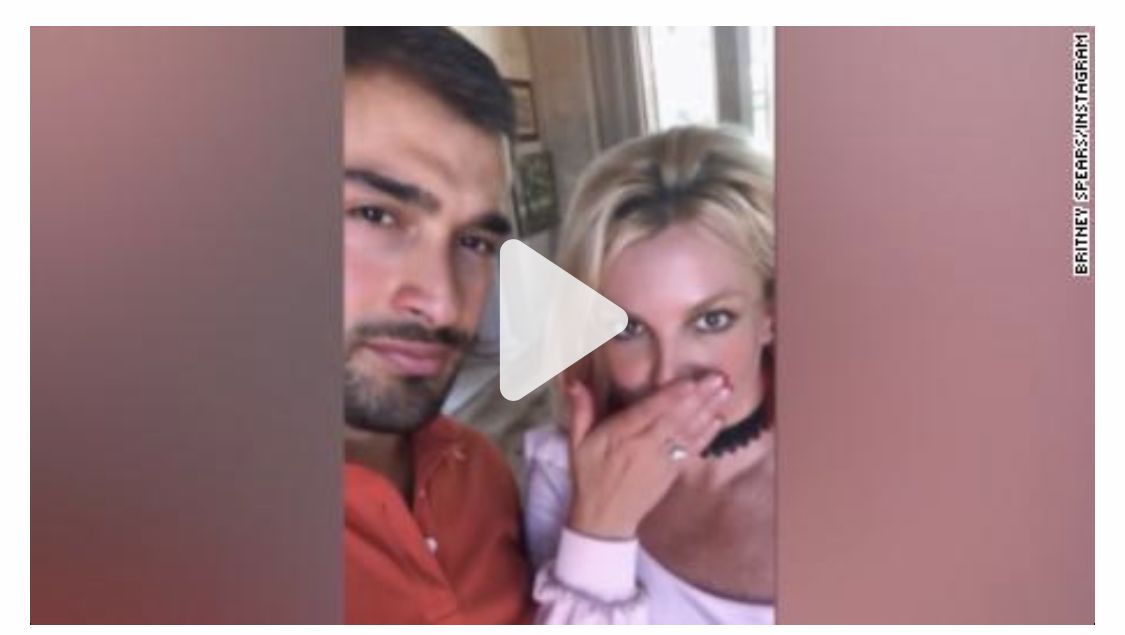
Britney Spears deleted her Instagram late Tuesday afternoon.
The move comes just two days after she announced her engagement to her longtime boyfriend Sam Asghari.
CNN has reached out to representatives for Spears for comment.
A source close to the singer says that "it was her decision" to delete the account and that it has been something she's "wanted to do for a while."
The Grammy winner is two weeks away from a court hearing that could determine whether or not she remains in her court-ordered conservatorship. Spears has been in a probate conservatorship for 13 years overseen by her father, Jamie Spears.
Britney Spears and boyfriend Sam Asghari are engaged
Britney Spears and boyfriend Sam Asghari are engaged
Earlier this month her father filed a petition to terminate the conservatorship citing his daughter's two emotional testimonies over the summer in which she said that she wanted her freedom back.
She also said that she wanted to charge her father with conservatorship abuse.
Meanwhile, Spears' newly hired attorney, Mathew Rosengart, has filed multiple petitions in an effort to put pressure on her father to step down from acting as the conservator of her $60 million dollar estate.
The next court hearing is scheduled for September 29.
Bạn đang đọc truyện trên: Truyen247.Pro